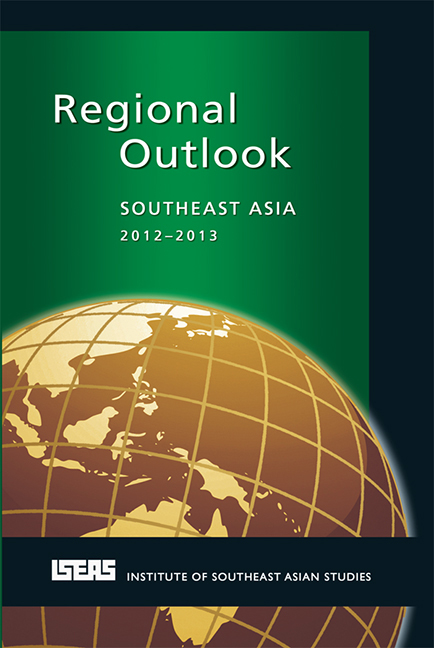The ASEAN-10
from POLITICAL OUTLOOK
Published online by Cambridge University Press: 21 October 2015
Summary
Brunei Darussalam
Pushpa Thambipillai
Brunei Darussalam glides peacefully from one year to another, largely unperturbed by political developments that bring changes in governments and leadership elsewhere in the region. That reality only reaffirms its manifestation as the abode of peace — Negara Brunei Darussalam — built on a foundation of Malay Muslim Monarchy. Enviably, Brunei enjoys several inbuilt features that act as necessary stabilizers for the state, the government, and the society. It does not face major setbacks, and neither will it encounter destabilizing disruptions to its socio-economic and political progress in the next few years. Observers often in fact feel that Brunei is so well fixed in its unique “mould” that most events and outcomes are predictable — even in dire situations, as when it proves susceptible to external economic conditions. In short, its established political system and revenue from hydrocarbon exports have provided both the rulers and the ruled with a stable domestic environment.
All the same, Brunei cannot claim total immunity from the impact of a rapidly changing global environment. Some observers have, for example, wondered about the impact of the “Arab Spring” on Brunei. They have pointed to its status as a sole sovereign sultanate in Southeast Asia. While it was headline news in the local media, however, the Arab Spring had little direct impact on the polity. Bruneians expressed moral support for those seeking change in the affected Arab states. But the extensive coverage of the spread of “democracy” in North Africa and West Asia, both in Brunei's local media and in the international broadcasts streamed into most homes, was indicative. It demonstrated a lack of apprehension that such exposure would sway the sultanate's populace towards making demands for similar political changes in Brunei's absolute monarchical system.
BRUNEI DARUSSALAM
Land Area: 5,770 sq. km.
Population (2010 World Bank data): 407,000
Capital: Bandar Seri Begawan
Type of Government: Monarchy
Head of State and Government: Sultan Haji Hassanal Bolkiah Muizzaddin Waddaulah
Currency Used: Brunei dollar
US$ Exchange Rate (14 November 2011): US$1 = B$1.28
- Type
- Chapter
- Information
- Regional OutlookSoutheast Asia 2012–2013, pp. 45 - 96Publisher: ISEAS–Yusof Ishak InstitutePrint publication year: 2012

